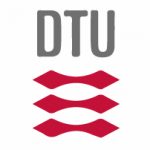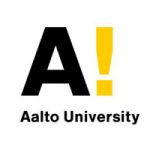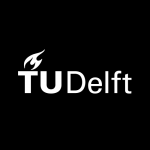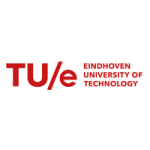项目介绍
From fundamental understanding of the interactions of natural materials with water and gas, we are developing a fast, cheap, environmentally friendly way to mineralise CO2, to make it stable for millennia. We are building a cross disciplinary team of PhDs and Postdocs. We are searching for enthusiastic members.
As a result of recently funded projects, our research group is looking to fill 2 positions. The goal is to develop a way to mineralise CO2, to convert it back to solid, stable on the long term. Even with the very best alternative energy sources and conversion of CO2 into products, current air and ocean CO2 levels will need 1,000 to 10,000 years to return to preindustrial levels. To reduce climate change and ocean acidification, CO2 must be converted to solid and put back into the Earth, where it came from in the first place.
At DTU Physics, we are running several projects in parallel, that range from very fundamental investigations of mineral-water-gas properties, through developing predictive models and new experimental methods and instrumentation, to applying research results and designing industrial CO2 trapping processes. The need is urgent, the task is challenging, and a multidisciplinary approach is essential – so we are looking for highly motivated group members, including chemists, physicists, nanoscientists, mineralogists, geoscientists, engineers and others. Our group includes members at all levels, from young bachelor students to experienced scientists and engineers.
The job – PhD Fellowship
We shall work together, as a cross disciplinary team, to understand solid-fluid (water and gas) interactions and the effect of organic compounds on them, using traditional techniques as well as state-of-the-art, ultrahigh resolution instruments and modelling. Our goals are to gain very fundamental knowledge about how nature works and to build a reactor to convert CO2 and waste solid materials to a valuable product, for use in new, low CO2 construction.
Our expectations of you
We are looking for curious, enthusiastic colleagues who have an interest in nature, enjoy solving problems and working together to meet the projects’ goals. We expect you to have an interest in at least one of the following topics:
- Atomic force microscopy
- Geochemistry and/or Mineralogy (mineral-fluid interactions)
- Surface Chemistry/Physics (thermodynamics/kinetics of mineral/glass interaction with fluids)
- Organic Chemistry (analysis/synthesis)
- Reactor Design
Flexibility is essential. We are looking for team players who can also work independently, who are motivated to help make, and be part of, a dynamic research environment and who have a positive, supportive and creative outlook. We expect you to have good communication and personal interaction skills and to be fluent in English.
You must have a two-year master’s degree (120 ECTS points) or a similar degree with an academic level equivalent to a two-year master’s degree.
We offer
DTU is among the leading technical universities of Europe and the top in the Nordic countries. The CO2 projects we plan will unite researchers from several DTU departments as well as national and international researchers from a number of fields. The atmosphere in the research group is friendly and supportive, allowing us to produce groundbreaking results, of interest to science and essential for industry. Our mission is to derive new fundamental understanding and use it to solve society’s problems.
Our vision is to develop an environmentally friendly, inexpensive method to convert CO2 gas into a solid that can be used in low CO2 concrete or put back into the ground, where it will remain stable for millennia. We are exploring possibilities with natural materials such as basalt and volcanic glass as well as waste construction materials and we are learning about the mechanisms and final solids produced during reaction with water and CO2. We combine theory and experiment using a range of classical and high tech techniques.
Our group’s overall research questions include:
- Can we understand the molecular level processes that control the behaviour of natural materials so that we can design an environmentally friendly product or process that will hasten solidification of CO2?
- Can we identify and characterise the secondary minerals that form during CO2 reaction and determine the mechanisms that form them?
- Can we understand changes in reactivity when organic compounds interact with mineral surfaces in the presence of CO2 and water, so we can simulate them with molecular modelling?
- Can we determine how microorganisms design and grow particular mineral phases during biomineralisation?
- Can we view porous materials in 3 dimensions, at the nanometre scale, as a function of time, so as to predict mobility of fluids (CO2 and water) through pore networks, at scales ranging from nanometre to centimetre?
- Can we build a reactor that traps CO2 and mineralises it to solids?
A PhD program at the Technical University of Denmark is 3 years. In addition to research and writing papers and a thesis, the program includes an opportunity to take courses (30 ECTS), to teach and to take part in an external stay at one of the project partner laboratories somewhere else in the world.
Salary and appointment terms
Appointment will be based on the collective agreement with the Danish Confederation of Professional Associations. Salary will be determined by the applicant’s qualifications and in agreement with the relevant union.
The position is full time and starts as soon as possible. The contract will be for 3 years.
The workplace is the DTU Lyngby Campus.
Further information
For questions, contact Prof. Susan Stipp, stipp@dtu.dk.
You can read more about DTU Physics at www.fysik.dtu.dk.
If you are applying from abroad, you may find useful information on working in Denmark and at DTU at DTU – Moving to Denmark. Furthermore, you have the option of joining our monthly free seminar “PhD relocation to Denmark and startup “Zoom” seminar” for all questions regarding the practical matters of moving to Denmark and working as a PhD at DTU.
Application and contact
Submit your online application no later than Monday, 29 July 2024 (23:59 Danish time). Open the “Apply now” link, fill out the online application form, and attach all your materials in English in one PDF file. To be considered for this position, you must include all requested parts. This includes:
- a cover letter (1 or 2 pages) explaining how you are perfect for the position, using your background as examples; include a few words about your perspectives on teaching and research;
- your CV, including employment history, research and teaching experience with dates, scientific highlights, ORCID identifier and other relevant information about you as a scientist and a person;
- if you have authored or coauthored one or more publications, please include the full references in proper format (do not include the actual papers in your application);
- your course list and grades from your university education; we do not require an official translation to English at this stage, your honest translation is fine for now;
- the name, email and phone number for 3 personal references (do not include letters of reference).
Please combine all parts of your application into a single pdf file and upload that under “CV”.
Applications sent by email or submitted online after the deadline cannot be considered. Applications must be made through the official submission site.
All interested candidates, irrespective of gender, age, race, disability, religion and ethnic background are encouraged to apply.
Technology for people
DTU develops technology for people. With our international elite research and study programmes, we are helping to create a better world and to solve the global challenges formulated in the UN’s 17 Sustainable Development Goals. Hans Christian Ørsted founded DTU in 1829 with a clear vision to develop and create value using science and engineering to benefit society. That vision lives on today. DTU has 13,500 students and 6,000 employees. We work in an international atmosphere and have an inclusive, evolving, and informal working environment. DTU has campuses in all parts of Denmark and in Greenland, and we collaborate with the best universities around the world.
联系方式
电话: (+45) 45 25 25 25相关项目推荐
KD博士实时收录全球顶尖院校的博士项目,总有一个项目等着你!






